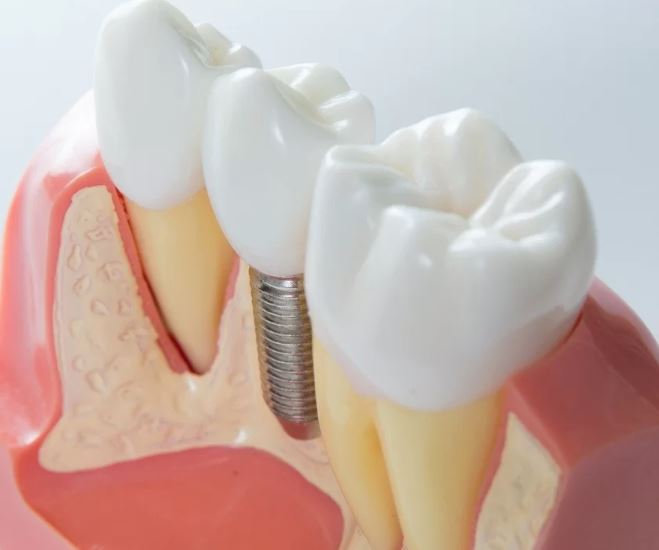How often should you visit the dentist?
Maintaining optimal oral health is essential for overall well-being, and regular dental visits play a pivotal role in achieving this goal. However, the ideal frequency of dental check-ups can vary based on individual health factors, risk levels, and personal habits. This comprehensive guide explores the factors influencing dental visit frequency and provides recommendations to help you determine how often you should see your dentist.

1. General Recommendations
Traditionally, it has been suggested that individuals visit the dentist twice a year for routine check-ups and cleanings. This biannual recommendation serves as a general guideline for maintaining oral health. However, recent studies and expert opinions indicate that the optimal frequency of dental visits should be personalized based on individual needs.
2. Factors Influencing Dental Visit Frequency
Several factors can influence how often you should schedule dental appointments:
-
Oral Hygiene Practices: Individuals who maintain diligent oral hygiene routines, including regular brushing and flossing, may require less frequent visits.
-
Dietary Habits: Diets high in sugars and carbohydrates can increase the risk of cavities, necessitating more frequent dental check-ups.
-
Lifestyle Choices: Habits such as smoking or excessive alcohol consumption can adversely affect oral health, leading to a need for more regular dental visits.
-
Medical Conditions: Certain health issues, like diabetes or weakened immune systems, can make individuals more susceptible to oral diseases.
-
History of Dental Disease: A history of cavities, gum disease, or other dental problems may require more frequent monitoring.
3. High-Risk Groups
Specific populations are considered at higher risk for dental issues and may benefit from more frequent visits:
-
Pregnant Women: Hormonal changes during pregnancy can increase the risk of gum disease.
-
Smokers: Tobacco use is a significant risk factor for gum disease and oral cancer.
-
Diabetics: Diabetes can impair blood flow to the gums, increasing the risk of infections.
-
Individuals with Gum Disease: Ongoing periodontal issues require regular professional care.
-
Those with a Weakened Immune System: Conditions or medications that suppress immunity can elevate the risk of oral infections.
4. Low-Risk Individuals
For those with a low risk of oral health issues—characterized by good oral hygiene, a balanced diet, no smoking, and no history of dental disease—less frequent visits may be sufficient. Some studies suggest that annual visits may be adequate for low-risk individuals. However, it's essential to consult with your dentist to determine the appropriate frequency based on your specific circumstances.
5. Importance of Regular Dental Visits
Regardless of the recommended frequency, regular dental visits are crucial for:
-
Early Detection of Problems: Dentists can identify issues like cavities, gum disease, and oral cancer in their early stages, allowing for more effective treatment.
-
Professional Cleaning: Even with excellent home care, plaque and tartar can build up in hard-to-reach areas and require professional removal.
-
Personalized Advice: Dentists provide guidance tailored to your oral health status, helping you maintain or improve your dental hygiene practices.
6. Tailoring Your Dental Visit Schedule
To determine the optimal frequency of your dental visits:
-
Consult Your Dentist: They can assess your oral health, discuss your medical history, and consider your lifestyle habits to recommend a personalized visit schedule.
-
Regular Assessments: Your risk factors and oral health status can change over time. Regular assessments ensure that your dental care plan adapts to your current needs.
7. Conclusion
While the traditional recommendation of biannual dental visits serves as a general guideline, the ideal frequency should be personalized based on individual risk factors and oral health status. Regular consultations with your dentist will help determine the most appropriate schedule to maintain optimal oral health. Remember, proactive dental care not only preserves your smile but also contributes significantly to your overall health.
8. Additional Considerations
-
Children's Dental Visits: It's generally recommended that children have their first dental visit by their first birthday or when their first tooth appears. Regular check-ups every six months can help in early detection of potential issues and instill good oral hygiene habits from a young age.
-
Dental Anxiety: If fear or anxiety prevents you from visiting the dentist regularly, discuss this with your dental care provider. Many practices offer solutions such as sedation dentistry or other techniques to help patients feel more comfortable during visits.
-
Financial Concerns: For those worried about the cost of frequent dental visits, many dental offices provide payment plans or membership programs to make regular care more affordable. Additionally, maintaining good oral health can prevent costly procedures in the future.
-
Oral-Systemic Health Link: Emerging research indicates a connection between oral health and systemic conditions such as heart disease and dementia. Regular dental visits can play a role in identifying and managing these potential health issues.
In summary, while general guidelines exist, the frequency of dental visits should be tailored to your individual needs. Regular communication with your dentist ensures that your oral health care plan is both effective and personalized, promoting not only a healthy smile but also contributing to your overall well-being.



